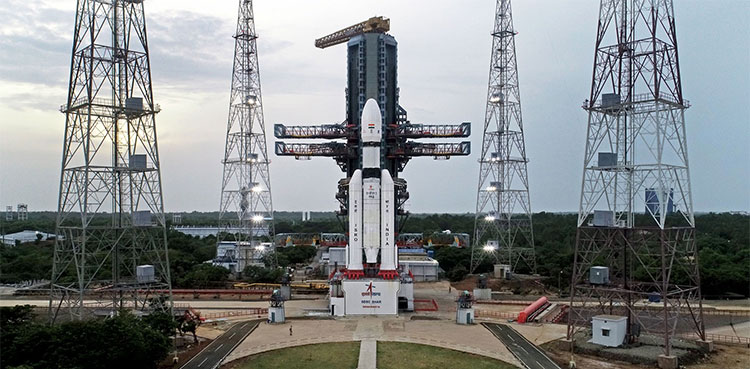
India’s space agency ISRO made final preparations on Friday for the launch of a rocket named Chandrayaan-3 that will attempt to land a robotic rover on the moon’s south pole, a first in space exploration.
India would join a group of three other countries that have managed a controlled lunar landing, including the United States, the former Soviet Union and China, if the mission succeeds.
The Chandrayaan-3 spacecraft would also be the first to land at the lunar south pole, an area of special interest for space agencies and private space companies because of the presence of water ice that could support a future space station.
The rocket is set to blast off from India’s main spaceport in the southern state of Andhra Pradesh at 2:35 p.m. (0905 GMT).
The Indian Space Research Organisation (ISRO) said it had completed a review of the mission readiness ahead of Friday’s scheduled launch. ISRO said on Friday morning it had completed fuelling in the rocket’s core and had begun filling propellant in its upper stage.
Several ISRO scientists were shown in footage by Indian news agency ANI taking a handheld model of the Chandrayaan-3 to a popular temple in southern India on Thursday to seek blessings ahead of the launch.
ISRO’s Chandrayaan-2 mission in 2020 successfully deployed an orbiter but its lander and rover were destroyed in a crash near where the Chandrayan-3 will attempt a touchdown.
If everything goes to plan, the Chandrayan-3 launch rocket will blast the spacecraft into an elliptical Earth orbit before it loops toward the moon for a scheduled landing around Aug. 23.
Chandrayaan, which means “moon vehicle” in Sanskrit, includes a 2 metres (6.6 feet) tall lander designed to deploy a rover near the lunar south pole, where it is expected to remain functional for two weeks running a series of experiments.
The launch is India’s first major mission since Prime Minister Narendra Modi’s government announced policies to spur investment in space launches and related satellite-based businesses.
Since 2020, when India opened to private launches, the number of space startups has more than doubled. Late last year, Skyroot Aerospace, whose investors include Singapore’s sovereign wealth fund GIC, launched India’s first privately built rocket.
“Joining a billion Indians in wishing great luck for #Chandrayaan3 mission!” Skyroot co-founder Pawan Chandana said in a tweet.
from Science and Technology News - Latest science and technology news https://ift.tt/P4otdel


0 Comments